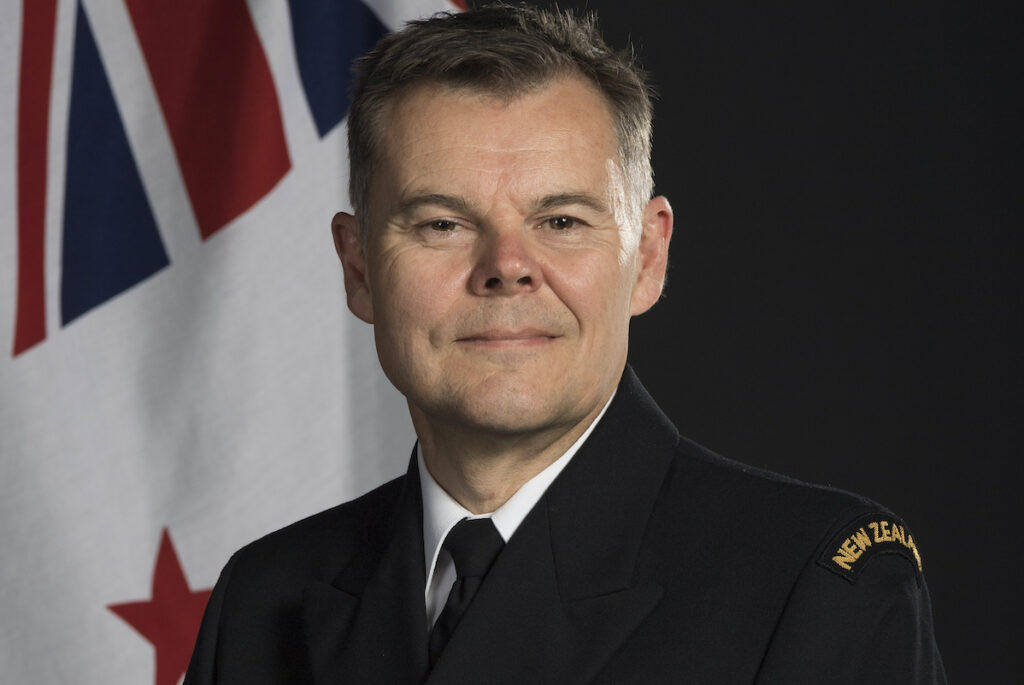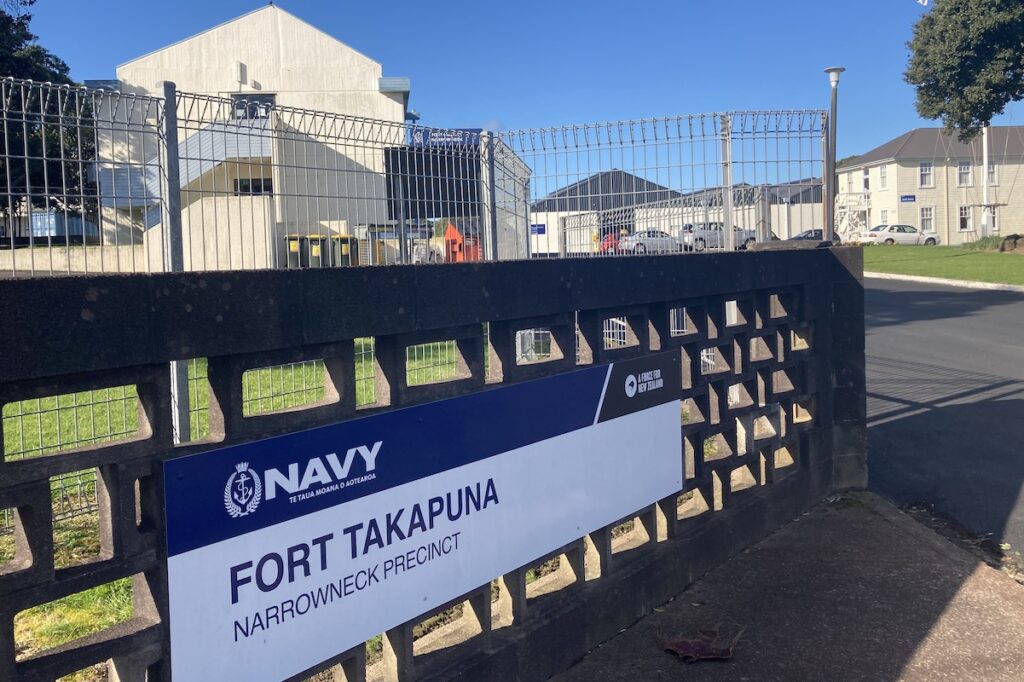What's New
8 September, 2021
Inside word on the Navy’s Covid HQ in Devonport

The head of the Devonport Naval Base, Commander Phil Wheadon, says he didn’t join the service “to have normal”.
Instead, in his 10 months as commanding officer of HMNZS Philomel, he admits he has faced stark choices in juggling the Navy’s enormous Covid response alongside its usual work.
From a recent Covid alert at the Navy’s Narrow Neck accommodation, to getting two vessels, HMNZS Aotearoa and Te Kaha, out to sea for routine exercises this week, the job has been anything but routine.
“We’re still a Navy first and foremost,” he says. “We’re doing what we can to maintain that.”
But it is a challenge, with so many personnel committed by the government to work on the Defence Force’s Operation Protect: in managed isolation and quarantine (MIQ) facilities, the security around them, and now helping police on road blocks around Auckland, in Alert Level 4, at its northern and southern borders.
Of the Royal New Zealand Navy’s around 2100 personnel – the majority of whom are based in Devonport – just shy of 900 people are tied up in rotating duty rosters for Operation Protect, or on ships or other national contingency duties. “It’s a big operation for us, no doubt,” he tells the Flagstaff. “Operation Protect is reaching into pretty much all of the Defence Force.”
Wheadon acknowledges that the local community has reason to want to know what is going on, given the number of personnel based in Devonport who are in front-line Covid response roles. A snapshot of those assigned right now, sees around 90 working in MIQ , 70 on security, and 25 to 30 on road-block duty.
Devonport is also the centre of the Northern Group administration of Operation Protect, with around 25 people dedicated to that, he says. Under Alert Level 4 conditions, a number of base personnel are working from home. Wheadon is among them, juggling his duties from Browns Bay. A skeleton workforce of around 60 people is being kept at Devonport, with approximately 50 at Narrow Neck, including junior officers two months into training.
“The people down there are looking after catering, welfare and management that can’t be done remotely,” Wheadon says.

A positive Covid-19 wastewater sample was returned on 25 August at the Navy’s Narrow Neck site. However, final results from Covid tests on all 56 personnel and eight civilian contractors connected to the site have proved negative. Follow-up wastewater testing was clear too. The initial water testing was sparked not by concerns at either the training site or the main base, but as a precautionary measure because Devonport was where the first case in the community of the current Delta variant outbreak was reported.
The junior officers at Narrow Neck, along with general personnel and Operation Protection staff who were all accommodated in pre-fabs at the rear of the Vauxhall Rd site, had been put into strict lockdown. They are now back operating at Alert Level 4 conditions. Those on the frontline follow strict PPE and other protocols.
Wheadon says uniformed personnel have had second vaccinations.
Testing at the main base had been conducted due to potential exposure, or staff had been at locations of interest or they had shown possible symptoms. After moving to isolate a few people, “testing has proved it’s not Covid”, he says.
Across the whole Navy, no positive tests have been returned relating to the current Auckland outbreak.
However the morale of Navy families and base personnel is an issue on his radar. “It’s not really what they signed up to do, but they recognise it’s a really important job to do,” he says.
His attitude is the same. “I’m not going to say it has been fun, but it’s been rewarding to be involved in keeping New Zealand safe.” Being in the Defence Force was about reacting to emergencies and being able to adapt, he said.
“Operation Protect is our No. 1 priority, the rest is maintenance of current capabilities and the development of new capabilities.”
For a commanding officer it means working out where cuts can be made without compromising readiness or eroding the workforce. Wheadon is also working out how to manage a new intake of ratings. “If we stopped our training, then next year our ability to crew ships, our ability to resource Operation Protect would be compromised,” he says.
To maintain a sustainable service, some activities are being reviewed. “We have to prioritise; cut our cloth accordingly,” he says.
Economising ranges from possible cut backs in parades to easing up on routine administration, with quarterly rather than monthly reporting, or serving an occasional cold breakfast rather than a hot one. Hard decisions will need to be made about the speed of wider organisational change.
But essential maintenance continues. HMNZS Manawanui is in the dockyard and HMNZS Wellington is the contingency ship for any call-outs, such as perhaps a Pacific aid mission. Of deployments, Wheadon says there has to always be enough people available. “We just have to make some stark choices of what activities we carry on.”
For Wheadon, whose background is in engineering, his sailing days are behind him, But he knows crew need offshore work to look forward to. “Everybody would rather be sitting on a tropical beach with a Mai Tai after a week or two at sea,” he says.
For now, he is working to ensure they find their jobs rewarding.
The Englishman, who served 16 years in the Royal Navy before enlisting in the Royal New Zealand Navy in 2004, says opportunities to do interesting tasks still exist.
Sailors from HMNZS Wellington had told him of the satisfaction they had taken in delivering vaccines to Rarotonga, for example.
They probably followed Navy tradition, he jokes, in returning home with exaggerated work stories of life on the high seas.

Please consider supporting The Devonport Flagstaff by clicking here:
